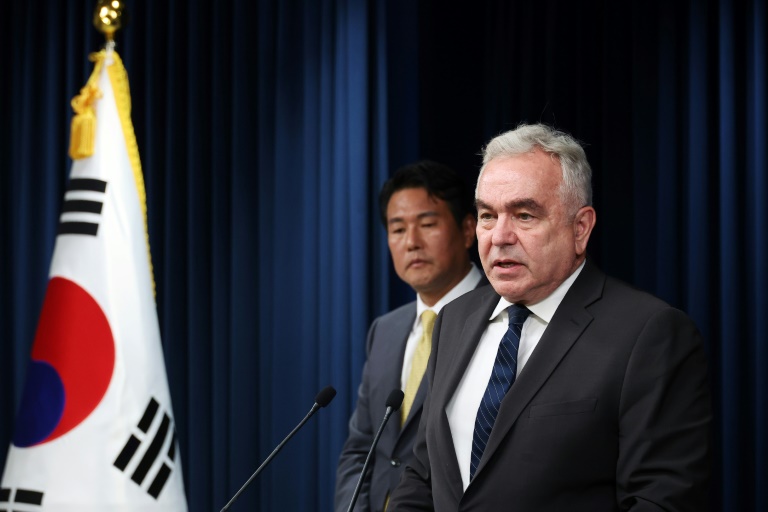A court in Ghana on 24 January sentenced for six people – including three soldiers – to death for their involvement in a plot to overthrow the government four years ago. The court, however, acquitted top UN-trained Ghanaian police chief Benjamin Agordzo, army colonel Samuel Kodzo Gameli and a junior military officer, corporal Seidu Abubakar, citing a lack of evidence connecting them to the treason charges.
The accused, alleged members of an association called Take Action Ghana (TAG), were said to have planned demonstrations to topple president Nana Akufo-Addo’s government.
Agordzo, who was rising to the top as head of transformation within the Ghana police service, was accused of advocating for an ‘Arab spring’ – a series of pro-democracy uprisings and protests that resulted in a change of governments in several countries in the Arab world – in Ghana.
Following his acquittal, a jubilant Agordzo said: “We give glory to God. He alone has made it happen. They knew it was falsehood. Our God doesn’t fail. I have always been free within my heart and I knew how it was going to end.”
Intelligence operation
The suspects were apprehended in 2019 following an intelligence-led operation by the Ghana Armed Forces. According to court documents, six unregistered pistols, one registered gun, 22 explosives, three grenades, 63 rounds of ammunition, two empty AK47 magazines and other equipment used in manufacturing weapons were uncovered at a local hospital that was serving as their base in Accra.
This is a frivolous case and abuse of power
Security operatives managed to infiltrate their ranks and after tapping their phones and recording conversations in connection with the crime, the suspects (including a gunsmith) were picked up and charged with treason.
They all pleaded not guilty. Treason is punishable by death in Ghana’s statutes although the West African nation in August 2023 abolished capital punishment for other crimes such as murder and smuggling. The punishment can be carried out by hanging or by firing squad.
Francis-Xavier Sosu, a human rights lawyer and opposition MP who sponsored the bill to abolish capital punishment was disappointed by Wednesday’s judgment, calling it retrogressive.
“It’s quite disappointing that in this day and age, we’ll still be having a sentence of death by hanging,” Sosu tells The Africa Report.
Compensation
Constitutional lawyer Martin Kpebu, representing Agordzo, says he will seek compensation for “malicious prosecution.”
“This is a frivolous case and abuse of power,” Kpebu tells The Africa Report. “The state just wanted to destroy my client’s career for expressing his views against corruption in the Akufo-Addo government.”
Kwadwo Appiagyei-Atua, an associate professor of law at the University of Ghana School of Law, echoes Kpebu’s sentiments, saying what happened to Agordzo “creates a dent on the image of Ghana’s human rights record … [Agordzo] is entitled to be compensated because it is a clear case of malicious prosecution.”
The six convicts – Donya Kafui (alias Ezor), Bright Allan Debrah Ofosu, Yohannes Zikpi, warrant officer class two Esther Saan Dekuwine, lance corporal Ali Solomon, and corporal Sylvester Akanpewon – may take solace in Ghana not having carried out any executions since returning to a stable democracy in 1992. The latest prison records show that 176 persons, including six women, have been on death row in Ghana.
Addressing the media after the judgment, attorney general Godfred Yeboah Dame, who led the prosecution, expressed satisfaction with the outcome of the trial, saying that “if these convicts were not arrested, only God knows what would have happened to this country”.
He added: “It is a significant judgment because the constitution of Ghana … frowns seriously upon any attempt to overthrow a government and that is why that offence [treason] is punishable by death.” A treason trial has not taken place in Ghana since 1966, following the coup of the country’s first president Kwame Nkrumah.
Victor Adawudu, the defence lawyer for the convicted individuals, said he would appeal the sentence.
Gameli also described his charges as frivolous, saying he was committed to democracy. “I have gone on several international peacekeeping missions and I know what countries go through under unconstitutional regimes. Why should I come and destabilise my own country?”
Understand Africa’s tomorrow… today
We believe that Africa is poorly represented, and badly under-estimated. Beyond the vast opportunity manifest in African markets, we highlight people who make a difference; leaders turning the tide, youth driving change, and an indefatigable business community. That is what we believe will change the continent, and that is what we report on. With hard-hitting investigations, innovative analysis and deep dives into countries and sectors, The Africa Report delivers the insight you need.






